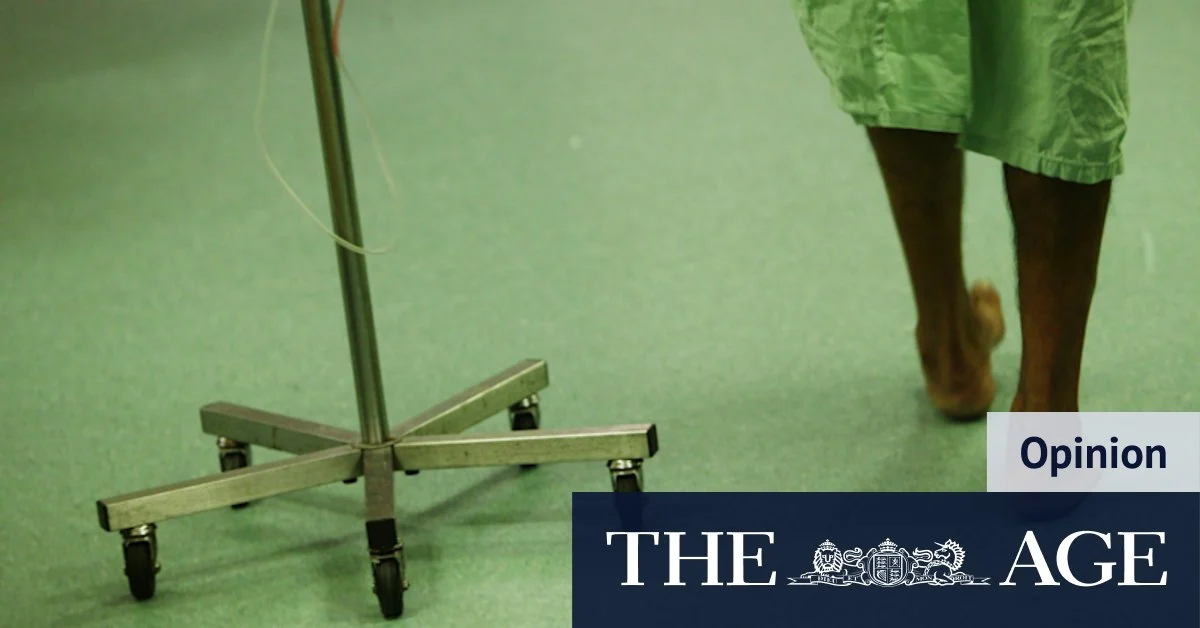There were lots of junior nurses in the corridors with computers on trolleys, no doubt recording their daily KPIs. We stared and wondered at the irony of all those hours spent punching in KPI data, robbing the staff of the ability to engage in key performance actions such as providing nursing care.
NOTY’s arm required daily dressings, but nobody came to do it, and so the patient in the opposite bed (the nurse with bowel problems) did her dressings.
Loading
NOTY could not access all her usual medications. I had to sneak some in from home as they decided not to write up the ones not available.
She’s vegetarian, and when she was finally allowed to eat after five days, chicken broth in a bowl was placed on her tray – not vegetarian, and not accessible to someone with a Parkinsonian tremor. I asked for a straw for her juice, but the ward had none.
NOTY, unwell and disabled, still managed to help out her fellow patients through advocacy and advice. Unfortunately, she had few caring or meaningful interactions with staff during that week of admission. Care was confined to handovers, checking obs, giving or writing up (or not) meds, and inappropriate food delivery.
She saw no dietitian, OT or physio, despite special dietary and equipment needs, and the wound nurse finally arrived on the day of discharge.
The staff at the hospital were good.They were competent, but there were too few of them, and their core duties had been reprioritised for the benefit of bean-counters. We thanked them for their care, and NOTY left them a big box of premium cherries. She also gave presents to the other women with whom she’d spent the week.
The nurse with bowel issues cried as NOTY left the room. Shaken, but still dedicated and kind, she was, after all, nurse of the year once.
Dr Marie Healy is a Sydney GP.


